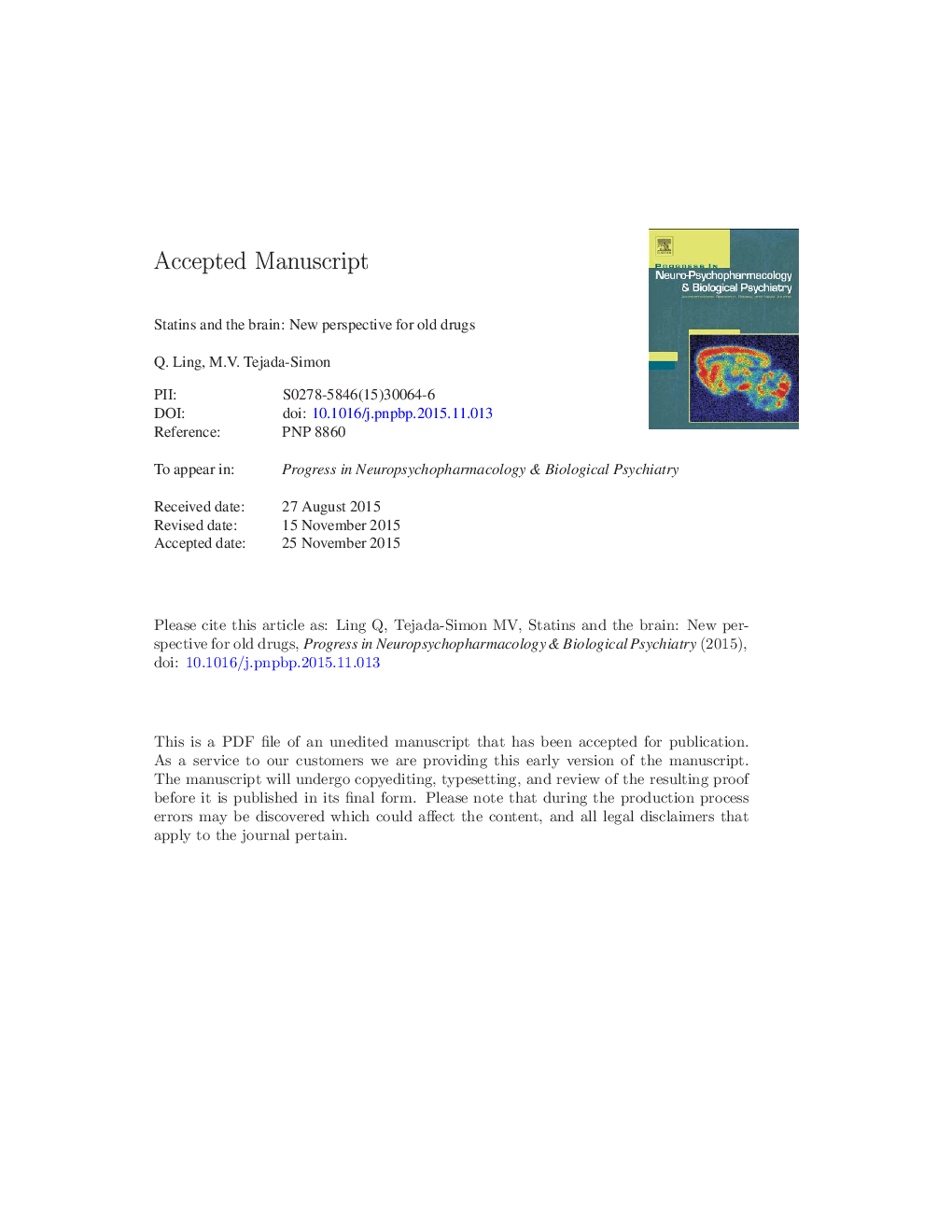| Article ID | Journal | Published Year | Pages | File Type |
|---|---|---|---|---|
| 5844255 | Progress in Neuro-Psychopharmacology and Biological Psychiatry | 2016 | 32 Pages |
Abstract
Statins are one of the most popular lipid-lowering drugs (LLDs). Upon oral administration, these drugs are well absorbed by the intestine and effectively used for the treatment of dyslipidemias. Recently, statins are becoming also well-known for their cholesterol-independent effects and their potential use in brain diseases and different types of cancers. While still controversial, recent research has suggested that statin's cholesterol-independent activities work possibly through alterations on isoprenoid levels. This reduction of isoprenoids in the central nervous system might result in effective biochemical and behavioral improvements on certain neurological disorders. This manuscript aims to highlight current research describing the use of statin therapy in the brain and discuss whether statins might affect neuronal dynamics and function independently of their cholesterol regulatory role.
Related Topics
Life Sciences
Neuroscience
Biological Psychiatry
Authors
Ling Q., Tejada-Simon M.V.,
